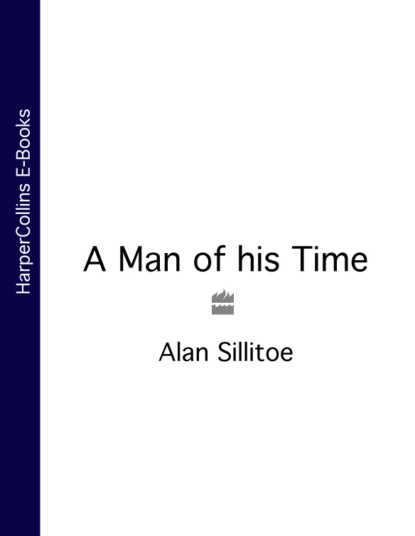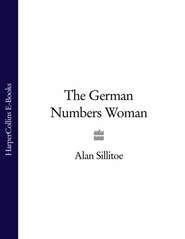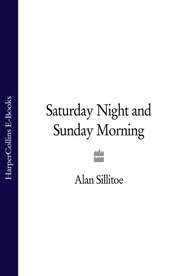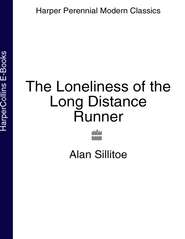По всем вопросам обращайтесь на: info@litportal.ru
(©) 2003-2024.
✖
A Man of his Time
Настройки чтения
Размер шрифта
Высота строк
Поля
‘Come on, my duck,’ Burton said. ‘If you can’t sing us a song, cock your leg up and do us a dance.’
She looked at the three men, a smile on pale lips, unable to think, hardly knowing where she was, but seeing her father in a mood unknown before, one she might never see again. Maybe he wasn’t her father, but someone who had come out of the night from a forest where he lived, and if he wanted her to dance, then she had to.
One leg high, one leg low, she stepped around the table, lips apart and smiling in her aim to obey and please him who must be her father after all. Tom and Morgan threw pennies at her feet, which she picked up quickly. ‘You should put her on the stage,’ Morgan said, ‘and make your fortune.’
‘I’d break a stick across the back of any girl of mine who wanted to go there.’ Burton, tired of the caper, heard Mary Ann coming down the stairs. He helped Sabina to the floor, and Mary Ann took her hand. Silence, except for the pendulum clock on the wall. ‘This is a fine thing. In the middle of the night as well. You and your drunken friends from the alehouse.’
A smile twitched across Burton’s downcurving lips. ‘It was a bit of fun, that’s all.’
‘I suppose it was, if you say so.’ She pushed Sabina before her. ‘Let’s get you back into bed where you belong.’
‘I’d better be going,’ Morgan said, ‘or I’ll get the rolling pin treatment as well.’
Burton pulled them close. ‘I don’t want another word from either of you about me and Florence, do you understand? Keep your mouths shut.’
Tom was amazed they had been overheard. ‘We won’t say a dickybird.’
‘People talk,’ Morgan said, on the porch.
‘Let them.’ Burton bolted the door, went into the parlour to take off his boots, and on getting upstairs found Mary Ann asleep.
After the move to Old Engine Cottages the children had played in the field between house and railway, and counted the wagons or carriages of trains steaming along the embankment from Radford station. Sitting on the fence, they argued over the numbers, then went hiding and seeking in the tall grass.
Sabina had always been fearful at the run of a startled rabbit – it might have been a dirty old man lying in wait – but as the wheat-cutter worked in from the hedges she saw how frightened the poor things were as they leapt for safety. She thought how important Farmer Taylor looked on the high seat of his dray, a large grey horse in the shafts fighting off flies.
‘You’ll have a good harvest this year,’ Burton said.
Taylor’s laugh was of a man never satisfied. ‘I might think so if the price was right. You work every hour God sends, and get little enough for it. The market’s bad for farmers, and this government doesn’t like us. Who do you vote for?’
‘The Liberal chap.’ Burton didn’t care who knew it.
Taylor snorted. ‘They’ll never do any good, whether they brought in the old-age pension or not.’
He can kiss my backside, if he’s a mind to. ‘You can’t expect much from any of them, so it’s no use complaining.’
Taylor stared at his gold half-hunter. ‘Is Mary Ann cooking the men’s dinner?’
The shilling or two earned went into her pocket, though sometimes the housekeeping. ‘I expect it’ll be ready directly.’
A bundle of brown fur hurled itself from a line of wheat, reaching a safe hedge in seconds. ‘Another lucky one.’
‘I’ll get my gun,’ Burton said.
Thomas in the garden was loading weeds into the wooden barrow whose iron supports Burton had beaten out in the forge. Oliver was up the slope winding a bucket from the well, and on wondering where Oswald was Burton saw him in the yard chopping the day’s firewood.
Mary Ann and Ivy came into the field with a cauldron of boiled bacon and a tray of newly baked loaves, odours reminding him of hunger, after the slice of bread and fat bacon for breakfast at six. But rabbits were fleeing in all directions, and he wanted one for their supper, so went upstairs and pulled the shotgun and cartridges from their hiding-place under the bed. Pointing the barrel downwards he opened the window to let in a summer breeze.
The gun came from an auction and cost three guineas, a light breech-loading firearm worth twenty now. Mary Ann grumbled at having such a weapon in the house, but never turned down a rabbit or a couple of pigeons for the pot. Like most women she disliked the plucking and gutting, so got him to do it. It was easy work: draw off the skin, open it up, pull out the stomach (careful not to burst it because of the fearful stink), cut off the head, then give the carcase a good wash before the butchering.
Farmhands were eating by the hedge, and Burton positioned himself in the far corner of the field, took a stone from his trouser pocket picked up on his way through the garden, and hurled it over the limit of uncut wheat.
Waiting on one knee, he fired, and missed. Another pair took their chance, one pausing to cuff itself, too confident at clear land ahead. He squeezed the trigger on the one that ran – more sporting that way – and bowled it over.
A cartridge still in the breech, he laid the gun down gently and launched himself at the half-alive rabbit. The butcher or poultry shop would charge a shilling, and this one was free – well-fed on the choicest grass – bar the price of the cartridge.
The blade of a hand against its neck dropped it dead at his feet. ‘This’ll make us a good dinner,’ he said in the house, the rabbit swinging from his hand. ‘It’s the third this year.’
Soft Emily ran to Mary Ann’s skirt, tears pumping as she stroked the fur. ‘Dad killed you, poor little thing. I’d like one of these for a cat!’
‘Stop your blawting.’ He rolled a cigarette, and descended into the cool pantry to tie the two back legs with a piece of twine, and put a pan under its head to catch blood. He took a slab of smoked bacon from its hook, and a large round loaf out of the panchion, and laid them on the kitchen table. ‘Mary Ann, cut me something to eat.’
By afternoon the hay field was flat and sweet-smelling, men and horses gone, crows daggering their beaks among the stalks. He scythed around the edges not reached by the combine harvester. The girls would husk and boil it in the outhouse copper, to mix with whatever else there was for the pigs.
He advanced with a wide swing of the arms through each uneven path. Nothing escaped the gleaning blade sharpened with a stick of carborundum to as fine an edge as the razor he shaved with. From a gap in the hedge Emily watched the stern reaper she had always known him to be in her dreams, till she could bear the spectacle no longer and stood behind the nearest bush to hide.
Florence opened the gate and crossed a corner of the field. He worked rhythmically, as if never to stop, forward to the privet then back to sweep what had not been in his track, thoughtless endeavour fuelled by the slow advance of his feet till the job was done. He noted her parasol, light gloves, and anxious smile. ‘What are you doing, so far out of your way?’
‘I get fed up being in that pub all day. They let me out for a walk.’
He laid down the scythe. ‘That was good of them.’
‘One of the customers said Farmer Taylor was haymaking so I thought I might see you.’
‘I’m glad you did.’
She smelled his sweat, and he took in the scent of fresh lavender when she came into his arms. ‘Careful what you do,’ he said. ‘There might be somebody about.’
She stood away. ‘I love you.’
There was no answer to that. His look would tell any fine woman that he wanted her, and if they fell in with it, as they sometimes did, they must know what they were doing. If they didn’t, and as time went on there was something about it they didn’t like, it was nothing to do with him. ‘Go across the Cherry Orchard, and I’ll see you by Robin’s Wood. Take the back lane.’
‘Don’t be long, my love. I haven’t got much time.’
You won’t need it, he thought, the way I feel. Emily on the other side of the hedge picked at a cornflower as Burton strode to the house. ‘There’s some wheat to collect around the field,’ he told Mary Ann. ‘Get the girls to husk it. They know what to do.’
‘I’ll do it myself, as soon as I’ve cleaned these pans.’
‘Don’t leave it too long, in case there’s rain. What did Taylor give you for cooking the men’s dinner?’
‘Half-a-crown.’
‘He’s a mean sort.’
‘He paid for the bacon and bread.’
‘So he should. I’m going back into the field for a bit.’
‘Is Emily out there?’










